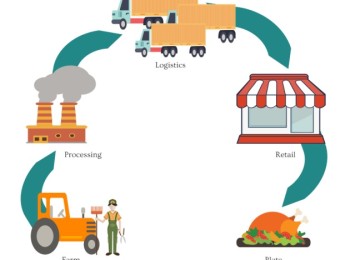The "Management Theory, Policy, and Process" training course offers a comprehensive exploration of foundational management concepts, organisational policies, and practical processes that drive business success. Designed for emerging leaders, managers, and professionals, this course equips participants with the skills and knowledge to understand and apply key management theories, formulate effective policies, and streamline organisational processes for enhanced productivity and innovation.
Participants will delve into the evolution of management theory, examining classical and contemporary approaches to leadership, decision-making, and organisational structure. The course also emphasises developing and implementing policies that align with strategic goals and regulatory standards. Practical insights into designing efficient processes, managing resources, and fostering a culture of continuous improvement are central to the training.
Participants will learn to bridge the gap between theory and practice through interactive discussions, case studies, and hands-on activities. They will gain the confidence to analyse organisational challenges, propose data-driven solutions, and lead teams effectively in dynamic environments.
This course is ideal for managers, team leaders, and professionals aspiring to leadership roles. It provides the tools to align management strategies with organisational objectives. By the end of the program, participants will be well-prepared to implement policies and processes that support long-term growth and adaptability.
Upon completion of the course, participants will be able:
- Provide an in-depth understanding of core management theories and their applications.
- Equip participants with skills to develop and implement effective organisational policies.
- Teach process optimisation techniques for enhancing efficiency and innovation.
- Enable participants to align management strategies with business objectives.
- Foster a culture of continuous improvement and strategic leadership.
This course is ideal for:
- Managers and team leaders aiming to enhance their strategic capabilities.
- Professionals involved in policy development or process optimisation.
- Aspiring leaders preparing for management roles in diverse sectors.
- Business consultants and analysts seeking a deeper understanding of organisational dynamics.
- Students or professionals pursuing advanced studies in management or leadership.
This course combines theoretical instruction with interactive and experiential learning techniques. Participants will benefit from lectures that outline key concepts and principles, followed by group discussions to contextualise these ideas within their organisations. Case studies from diverse industries provide practical insights and allow participants to explore best practices and innovative approaches.
Workshops and hands-on activities enable participants to design policies, map processes, and develop actionable strategies tailored to real-world challenges. Trainers will use role-playing exercises to simulate decision-making scenarios, enhancing participants’ critical thinking and leadership skills.
Participants will also have access to digital resources, including templates, guides, and video tutorials, to support continued learning and application beyond the classroom. Feedback from trainers ensures personalised development and alignment with professional goals.
Day 5 of each course is reserved for a Q&A session, which may occur off-site. For 10-day courses, this also applies to day 10
Section 1: Foundations of Management Theory
- Overview of classical and modern management theories
- Key contributions from theorists like Taylor, Fayol, and Drucker
- Contemporary trends in leadership and organisational behaviour
Section 2: Organisational Policies and Strategic Alignment
- The role of policies in guiding organisational decision-making
- Steps for developing, communicating, and enforcing effective policies
- Ensuring alignment with regulatory frameworks and corporate values
Section 3: Process Design and Optimisation
- Principles of process mapping and analysis
- Tools and techniques for streamlining workflows
- Integrating technology to enhance process efficiency
Section 4: Decision-Making and Problem-Solving
- Models and frameworks for effective decision-making
- Balancing intuition and data in managerial decisions
- Managing uncertainty and risk in complex environments
Section 5: Performance Management and Continuous Improvement
- Setting performance metrics and goals
- Implementing feedback systems and performance reviews
- Strategies for fostering a culture of innovation and adaptability
Section 6: Case Studies and Applications
- Analysing real-world scenarios to apply learned concepts
- Group activities to design policies and optimise processes
- Lessons learned from successful management practices
Upon successful completion of this training course, delegates will be awarded a Holistique Training Certificate of Completion. For those who attend and complete the online training course, a Holistique Training e-Certificate will be provided.
Holistique Training Certificates are accredited by the British Assessment Council (BAC) and The CPD Certification Service (CPD), and are certified under ISO 9001, ISO 21001, and ISO 29993 standards.
CPD credits for this course are granted by our Certificates and will be reflected on the Holistique Training Certificate of Completion. In accordance with the standards of The CPD Certification Service, one CPD credit is awarded per hour of course attendance. A maximum of 50 CPD credits can be claimed for any single course we currently offer.
- Course Code PO4 - 147
- Course Format Classroom, Online,
- Duration 5 days









